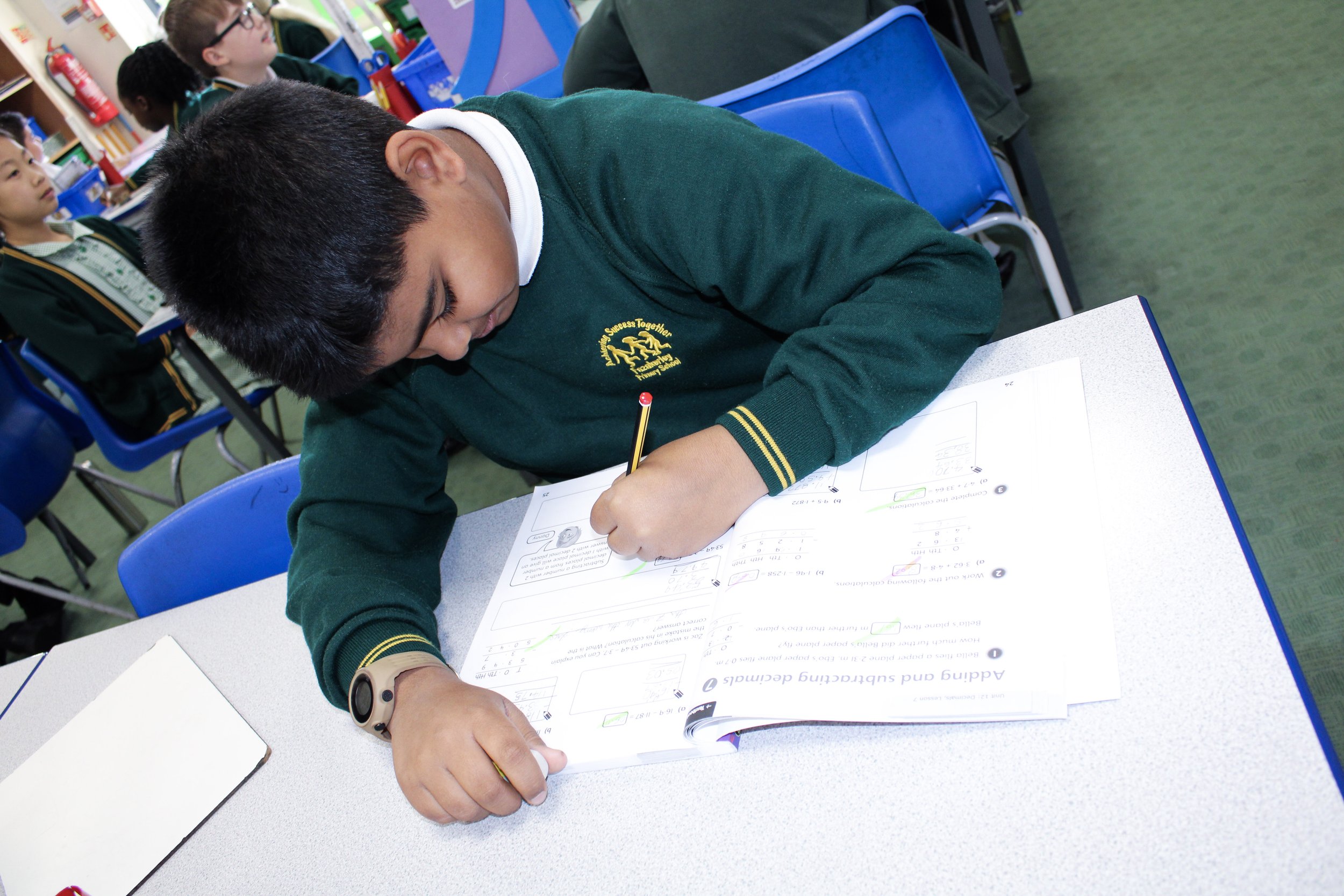
Maths

Maths
at Fazakerley Primary School
The Maths Leader is Mr J Hayes
“A ‘high-quality’ mathematics education provides a foundation for understanding the world, the ability to reason mathematically, an appreciation of the beauty and power of mathematics, and a sense of enjoyment and curiosity about the subject.”
— National Curriculum September 2013
We have taken into account research carried out by the Education Endowment Foundation (EEF) and used their recommendations to inform our key decisions about Maths in our school. To read the guidance reports published by the EEF, please click on the buttons below:
Maths Subject Specific Pedagogies.
In addition to our generic pedagogies, which are:
Flexible groupings
Revisiting prior learning from lessons
Retrieval of prior knowledge in different contexts
Visualisers for modelling
I do, we do,you do
Chunking lesson
Dual coding
Strategies for remembering
Sequential graphics
Working walls (consistent subject specific design)
Explicit teaching of vocabulary. (E.g. Use of visualiser / demonstrate methods and techniques).
We also have the following subject specific pedagogies for Maths:
Our Maths is based upon small stepped sequential learning. Lessons and teaching sequences follow the same pattern throughout:
Fluency facts / basic skills / retrieval of previously learned facts to help make connections and build upon prior learning. For example multiplying/dividing by 10,100,1000 moving onto weights, measures and capacity.
Developing deeper understanding through independent practice on Reasoning problems so children can demonstrate ‘Conditional Knowledge’ on a variety of question types in the topic - I know when enables them to demonstrate what they know on a variety of reasoning problems.
This small stepped approach means children won’t be left behind on their knowledge journey as teachers will guide them until they are confident to move on.
Encouraging classroom discussion and respectful challenge when misconceptions are identified.
Encourage risk taking and use of prior learning to draw upon links between topics.
Formative assessment techniques include:
- Circulating to check for understanding and misconceptions.
- Instant feedback.
- Live feedback to address any misconceptions identified.
- Questioning and use of silent signals
- Classroom discussion and respectful challenge
Sharing excellent practice with peers helps children develop thinking and challenge one another in a safe space.
Priority 20% / SEND have carefully selected adaptations made to Maths Journals and Power Maths textbooks to support learning to keep them on the same learning journey as peers.
The use of ‘Grab Bags’ so all priority 20% and SEND pupils have access to resources / supports for their learning in maths lessons.
Use of resources to support learning - explicit teaching of how to use resources independently so pupils take ownership and are able to confidently use a variety of resources.
Challenge tasks to stretch and challenge GDS pupils or pupils who are excelling within lessons - with carefully selected reasoning questions.
Low stakes testing at the end of every unit to assess progress and areas for development to be used in separate 4-a-day activities.
Sentence stems to reinforce learning and understanding and the explicit use of vocabulary and its meaning.
Same day provision for small groups identified by the teacher as needing further support as part of the instant feedback and learning loop.
Prioritisation of learning in Maths separate from Power Maths lessons include:
- 4-a-day lessons at the start of every day (using Question Level Analysis from prior assessment) to expose children to areas for further development in Maths and to retrieve previously learned knowledge
- Mastering Number sessions three times per week in Reception, Year 1 and Year 2 to support fluency and automaticity skills.
- Multiplication sessions using TTRS and Hit the Button in Year 3 and Year 4 to support fluency and automaticity skills.
- Use of counting sticks in Year 3, Year 4, Year 5 and Year 6 to support fluency and automaticity skills.
Regular representation of the subject within ‘Low Stakes Friday Curriculum Quiz’ to reinforce knowledge, skills and understanding and aid cognitive load. Teachers guided by subject lead’s key questioning document.




